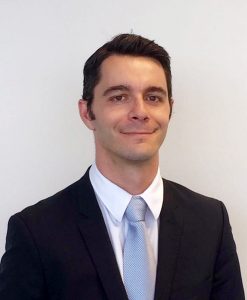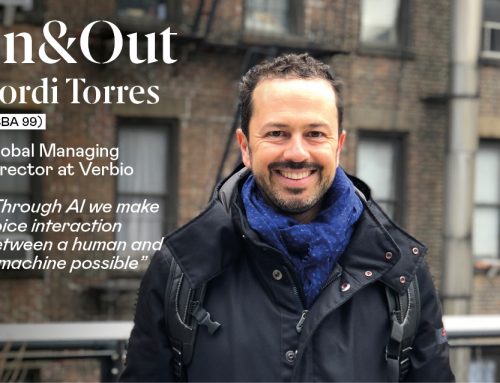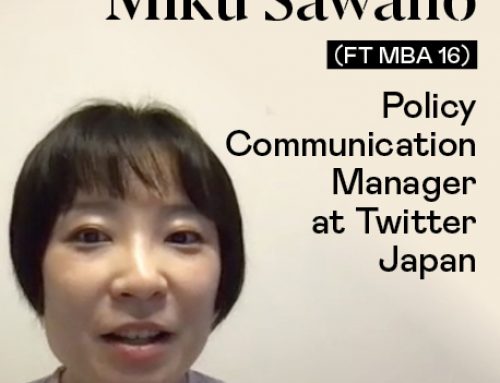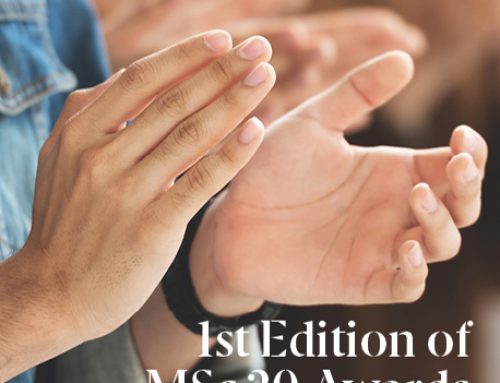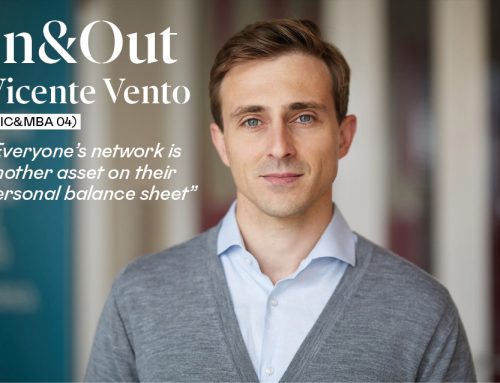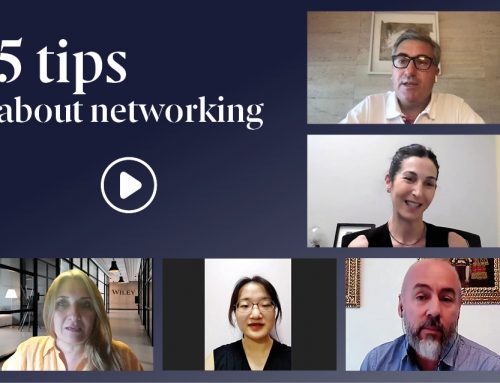Vincent Rossignol (CDG 12), CCFO at Africa Cluster Novartis
Vincent Rossignol started at Novartis as an intern, but the company quickly promoted him, offering every two years new assignments to stretch him beyond his comfort zone. Thanks to them, he has worked in different divisions, different countries (Switzerland, Spain and South Africa) and different positions.
-What are your functions as Country CFO of Sub-Saharan Africa?
There are three pillars on which I am focusing on my role: first, to drive performance with integrity, ensuring that we put the right resources in the right places, that we objectively assess our risks and opportunities, and that we have systems and policies in place to do business compliantly.
Secondly, I am responsible for driving simplification and innovation. Finance and its related functions like IT or Procurement are at the core of our organization. Simplifying some of our key processes can really have an impact on the way people work, allowing them to spend more time on external matters rather than internal procedures. Innovation also implies working on new business models, new routes to market, piloting initiatives in some key territories. This is what gives us an edge versus our competitors.
Lastly, and most importantly, I heavily focus on developing our teams. Talent is scarce in Africa; not only should we ensure that we hire the right people, but more than in any other places, we have an obligation to develop them and help them to create a path for themselves in the organization. We have had some key successes lately, and this is certainly the part of my job that is the most rewarding.
-You have been working for more than 10 years at Novartis. How would you rate your career?
I have been very fortunate to find in Novartis a partner to help me grow my career beyond my personal aspirations. It really helped me to grow, both on a personal and professional level, and I am very happy with the way my career has developed so far.
-What are the particularities of the African continent? And the objectives of Novartis in the region?
Access in Africa is definitely a notion that is radically different from the one you would imagine in many other countries, for several reasons. Infrastructure, in a broad sense of the word, from roads to hospitals, is underdeveloped in most of our markets. Distributors face the burden to fund their stocks, that they buy in hard-currency, at local interest rates with fluctuating local currencies, applying high markups that drive up the cost of our products. Healthcare professionals are few, and concentrated in major cities only. Governments face the double burden to fight with under-resourced Health departments both communicable diseases like HIV or tuberculosis and non-communicable diseases that are on the rise, like diabetes, hypertension or cancer. All of this makes it very difficult for most populations in Africa to get access to medicines.
Not surprisingly, access is one of our key priorities on the continent, and it takes different aspects; not only are we working on our pricing components, but we are also focusing on our supply chain optimization, to avoid as much as possible the waste generated by the high mark-ups in the chain. We encourage medical training and the upskilling of the healthcare professionals in Africa. Last year, for instance, we signed a Memorandum of Understanding with the South African Department of Science and Technology to promote the development of clinical trials in Africa. Lastly, Novartis is also involved in philanthropic activities, providing for instance millions of anti-malaria treatments at production costs in the region, or through its Novartis Access initiatives, where treatments on a wide range of disease are offered at a cost of one US$ per month. All of this with the intention to create a more sustainable healthcare landscape in the continent.
-How did the economic crisis affect the pharmaceutical industry?
The pharmaceutical industry has indeed been severely hit by the crisis. Most of the markets where big pharmaceutical companies operate in Africa are heavily dependent on exports of key commodities. In countries like Nigeria or Angola, for instance, oil production accounts for more than 90% of the exports. When the oil price dropped from 120$ per barrel to less than 40$, in a few months, it put a significant strain on the resources of these countries, to say the least, and their capacity to import finished goods, including pharmaceutical products. Hence, we saw sharp decline of sales in these markets along the past two years, and many companies reacted by downsizing, or pulling out from Africa. Luckily for us, our Board of Directors has a long-term commitment towards Africa. We have therefore been able to dynamically redeploy our resources in Africa towards the most stable markets to compensate the losses in the most exposed ones, and we are seeing positive results coming from this strategy. Weathering the storm will definitely help us to be better positioned once the next phase of significant growth in these markets will come.
-What are the challenges of the pharmaceutical industry?
They are many. I mentioned access earlier on, but this is only one aspect. Generic competition coming from India or China, with a less than optimal quality is another one. Some markets are also plagued with counterfeits, which in many cases can even turn out to be deadly: imagine you are giving an anti-malarial drug to a child when in reality you are just treating him with a dose of sugar or paracetamol. This is the heartbreaking reality of the countries we operate in.
Nevertheless, such challenges also create their own set of opportunities: because of this, customers in Africa are brand-savvy, and brand equity is highly important to them. They want to buy good quality products to make sure that treatments will be efficient. When we manage to make our products available to our patients at an affordable price, we create a virtuous space and a sustainable growth. This is what we are aiming at throughout the continent.
-What objectives do you do in the medium term in your professional life?
There are a few things I know for sure: one is that I am committed to Africa and want to stay there in the medium term, and the second one is that I feel deeply attached to my company. Apart from that, I remain highly curious and open-minded. I don’t know yet what the future holds for me, whether it will be in finance or in commercial roles for instance. But I know for sure that the company is very keen on developing its talent, and if I come with a proposal that make sense to them, they will fully support me, even if it means taking some risks that are outside the traditional financial development path.
-What is it like to live and work in Johannesburg?
It is extremely exciting and profoundly motivating. Johannesburg is a hub for many companies that want to invest in Africa, therefore the business life here is very dynamic. There is also a high level of expats, which means that you are bound to meet with people from different origins, different backgrounds, that you will learn from.
On a personal level, it is deeply enriching. Most foreigners will come to Johannesburg with the idea that the place is highly corrupted and ravaged by crime. This is only one version of the truth, and most likely, not the one that most people will face. The quality of life is one of the highest I have ever seen. Besides, unlike Pretoria or Cape Town, Johannesburg has always been considered as the liberal capital of the country, even during the apartheid years, and this commitment to struggle has now evolved into an ongoing search for creativity and rejuvenation, building a better future for the new generations. There are entrepreneurs everywhere, trying out new things, new business models at the corner of every street. Being a witness and agent of this change is a fulfilling experience, and if you are willing to invest your personal time in helping the communities around you, there are many ways where you will find yourself making a difference.
-What does ESADE mean to you?
I am deeply attached to ESADE because my year and a half on the campus has been one of self-realization. I completed there a Corporate MBA sponsored by my company, where we were going back to school every Friday for 8h. I was truly excited about the opportunity that was given to me and at the same time terrified by the thought I would never manage balancing my professional life, my private one and my new academic commitment. But the contrary happened. Starting an MBA forces you to reconsider the way you work, empowering your teams more, focusing on the things that really matter and letting go of the others. It is also a time of reflection, where you span through the range of business matters studied at school that will give you new insights into your professional life. And little by little, as the months pass by, you realize that you can and will make it, that you are developing into a more skilled business professional. I really enjoyed this and still think back of this time at ESADE as one of the most enriching of my professional career.
-What advice would you give to the alumni who are thinking of developing their professional career in Africa?
My personal advice would be not to be afraid to take risks. Stretching yourself beyond your comfort zone is always the quickest way to learn, and Africa will offer you many opportunities in that respect. I also believe in the “big fish in a little pond” theory: because talent is scarce in Africa, and because markets are not as developed (yet) as in Europe or the US, it gives you an opportunity to shine in your company and accelerate your professional development. Had I stayed in Spain, in my Financial Controller position at Novartis, I doubt I would have ever become a CFO, or at least not at this accelerated pace. Taking the risk to leave Barcelona to Johannesburg was the greatest catalyst in my career.
-What skills are needed to work abroad?
At the end of the day, it is all about curiosity and humility. Curiosity will help you to question your surroundings, to better understand the people around you, their traditions, their culture, their beliefs. But curiosity along is not enough. You need to come with an open-mind and the humility that will help you blend in. Should you be judgmental about your new culture, then you are unlikely to experience a sense of belonging, and homesickness is just around the corner. You need to embrace the culture you live in for what it has to offer, making the most of its positive sides, and helping to work out the negative ones. People are always amazed that we managed to move from Barcelona to Johannesburg, without feeling the urge to come back to Spain. Had we tried to relive in South Africa the life we had in Barcelona, we surely would have failed in settling in our new country. But we came with an open-mind, followed the lead of people around us and embraced the culture of the country we live, its diversity, its energy and its creativity. This is surely one of the richest experiences that has ever been offered to us, and I am glad we took this leap of faith a few years ago.

